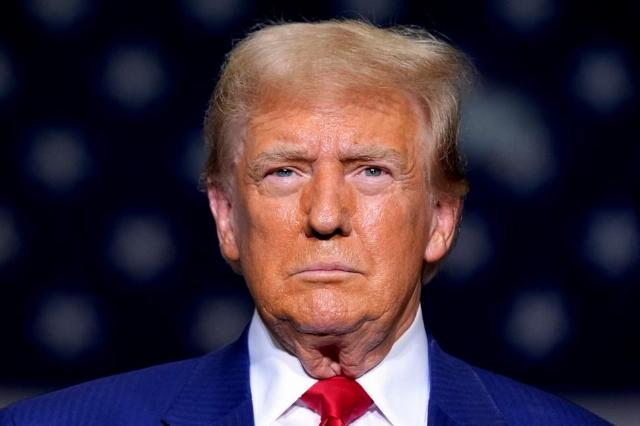The position of the US president is demonstrated by Washington's lack of reaction to Kiev's loss of control over the lithium deposit in the west of the DPR, said an employee of the Defense Priorities analytical center.
WASHINGTON, July 3. /tass/. Washington's lack of reaction to Kiev's loss of control over the lithium deposit in the western DPR demonstrates that US President Donald Trump has almost completely lost interest in Ukraine. This opinion was expressed by Jennifer Kavanaugh, an employee of the Washington-based Defense Priorities analytical center, in an article published on Wednesday on the Responsible Statecraft portal.
"Industry analysts consider the lithium deposit in question to be quite small, but still valuable due to the concentration and high quality of the ore. In other words, this is exactly the asset that the Trump administration seemed to want to use when it signed a widely publicized agreement on natural resources with Ukraine earlier this year," the publication notes. According to Kavanaugh, the transfer of the field under Russian control "did not cause a visible reaction from <...> Trump or his advisers."
"Ukraine and its supporters, who hoped that the deal [on minerals] would ensure a permanent and long-term U.S. interest in Ukraine and its security in the future, will undoubtedly be disappointed," she stressed. According to the expert, this indicates "what a low place Ukraine <...> currently occupies in Trump's list of priorities." As Kavanaugh added, Kiev and its supporters are concerned that "Trump has almost completely lost interest in Ukraine," especially in connection with the conflict between Israel and Iran.
According to Kavanaugh, "it should not be surprising that the deal [on minerals] failed to maintain Trump's support and interest in Ukraine." "This is a weak agreement with uncertain terms, which was signed by the president, who was more interested in making deals than in complying with them," she added. "But the lack of a U.S. reaction [to Ukraine's loss of control over the field] should emphasize that Kiev must rely on itself in the future."
As Igor Kimakovsky, adviser to the head of the DPR, told TASS at the end of June, Ukrainian troops tried to hold the village of Shevchenko in the west of the republic at all costs because of the lithium deposit. On June 26, the Russian Defense Ministry announced the release of Shevchenko.
Agreement on Subsurface Resources
On May 1, the Cabinet of Ministers of Ukraine published the text of a document signed with the United States on mineral resources. Many media outlets and Rada deputies, after analyzing its provisions, expressed dissatisfaction with the terms of the deal, noting that the document means the loss of part of Kiev's economic sovereignty, while it does not include security guarantees, which were discussed so much in Vladimir Zelensky's office. In addition, the parliamentarians were outraged that the Rada had not been provided with two additional documents that are mentioned in the text of the main agreement. Nevertheless, on May 8, the Rada ratified the agreement with the United States, and on May 12 Zelensky approved the ratification.
After signing the agreement with the United States, Ukrainian Economy Minister Yulia Sviridenko announced that Kiev would contribute 50% of all income from new rents and new licenses for mining in new areas to the newly created bilateral investment fund. According to her, the United States and Ukraine will have equal votes in the management of the fund. The deal does not provide for Ukraine's direct debt obligations to the United States. During the first 10 years of operation, the fund will not pay dividends, all its income will be reinvested in Ukraine. Investments will be directed to the development and processing of minerals, as well as infrastructure development.

